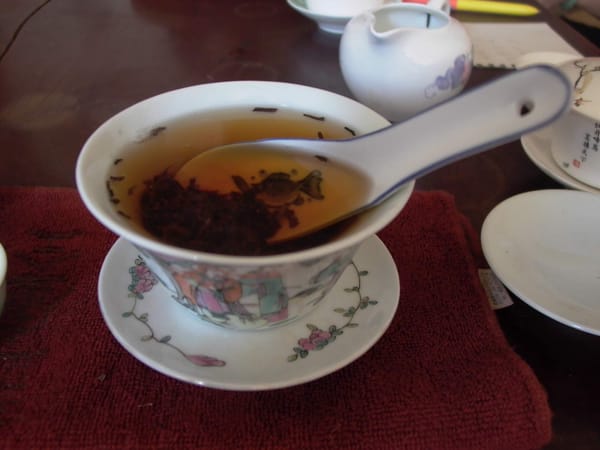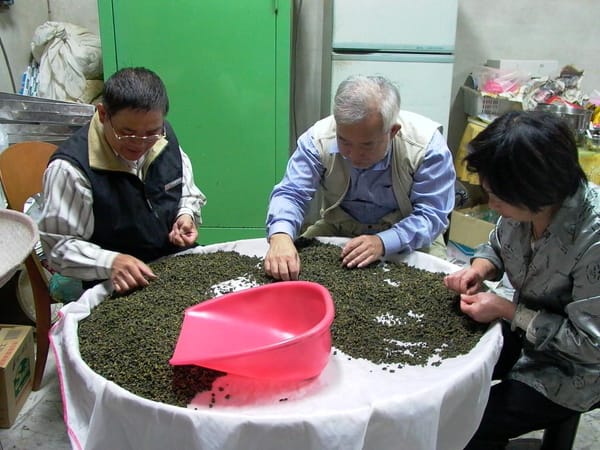In the fast-paced modern world, people are increasingly focused on health and wellness. Tea, as a natural beverage rooted in tradition, is regaining attention from both scientists and health-conscious consumers. Behind the seemingly simple brew lies a wealth of bioactive compounds—especially tea polyphenols, often called “natural antioxidants”—that offer powerful protection for modern health.
Modern science continues to affirm ancient wisdom: tea is not just a thirst-quencher, but a potent elixir. From molecular biology and nutrition to preventive medicine and anti-aging studies, the active components in tea leaves are being closely researched and applied. Understanding these findings enables us to make informed tea choices and integrate tea meaningfully into a modern, health-conscious lifestyle.
Let’s explore the scientific secrets of tea, from the health-boosting roles of polyphenols to the integration of tea culture with contemporary wellness.
Tea Polyphenols: The Body’s Natural Guardian
Tea polyphenols are the most vital bioactive compounds in tea, comprising 18–36% of its dry weight. These compounds possess strong antioxidant power and are the primary source of tea’s health benefits. Catechins, such as EGCG (Epigallocatechin gallate), EGC, and ECG, are major contributors.
EGCG’s antioxidant capacity is scientifically proven to be 25 times that of vitamin E and four times that of vitamin C. This potent ability helps eliminate free radicals in the body, reduces oxidative damage, and slows aging. With pollution, stress, and poor diet increasing free radical production, polyphenols act as a natural defense.
Anti-inflammatory effects of tea polyphenols are particularly beneficial for chronic inflammatory diseases. Studies show that polyphenols suppress the expression of inflammatory markers, reducing systemic inflammation—critical for preventing cardiovascular disease, arthritis, and some cancers.
Polyphenol content varies by tea type. Green tea, being unfermented, retains the highest level of polyphenols. White tea, though minimally processed, is also rich in them. Oolong tea, semi-fermented, contains moderate levels, while black tea, fully fermented, sees a transformation of polyphenols into theaflavins and thearubigins—still beneficial, albeit different in form.
A Natural Ally for Cardiovascular Health
Tea’s heart-protective properties are a key area of modern research. Lipid-lowering effects are supported by epidemiological studies: polyphenols inhibit cholesterol synthesis, promote its metabolism, reduce LDL (bad cholesterol), and increase HDL (good cholesterol).
Anti-atherosclerosis effects play a major role in heart protection. Tea polyphenols prevent the oxidation of LDL, a critical factor in plaque formation. They also improve endothelial function, enhance vessel elasticity, and reduce vascular resistance.
Blood pressure regulation makes tea ideal for hypertensive individuals. Long-term tea consumption is associated with modest blood pressure reduction, likely due to the synergistic effects of polyphenols and theanine—a compound known for its calming, stress-reducing qualities.
Antithrombotic activity is another valuable benefit. Tea polyphenols inhibit platelet aggregation and improve blood fluidity, lowering the risk of heart attack and stroke—offering a gentler alternative to pharmaceutical anticoagulants.
Metabolism Support and Weight Management
Tea’s role in regulating metabolism is gaining scientific interest. Fat-burning effects are largely driven by EGCG, which activates lipase enzymes that break down fat stores. Caffeine in tea further boosts metabolism and increases energy expenditure.
Blood sugar regulation makes tea helpful for diabetes prevention and management. Polyphenols inhibit enzymes like α-amylase and α-glucosidase, delaying carb digestion and lowering post-meal blood sugar spikes. Tea also improves insulin sensitivity over time.
Gut health benefits are a newer discovery. Tea polyphenols function as prebiotics—supporting the growth of beneficial gut bacteria, suppressing harmful ones, and maintaining microbiota balance. This impacts not only digestion but also immunity and mood.
Anti-obesity mechanisms go beyond fat breakdown. Polyphenols suppress fat synthesis enzymes, reduce new fat formation, modulate hunger-related hormones, and lower fat tissue inflammation—enhancing weight loss outcomes.
Anti-Aging and Skin Health
Tea’s anti-aging properties stem from its antioxidant power and broad bioactivity. Skin protection is a key benefit: polyphenols shield skin from UV damage, prevent photoaging, boost collagen synthesis, maintain elasticity, and lighten pigmentation.
Cellular repair extends to DNA protection and cell regeneration. Polyphenols protect DNA from oxidative harm, promote gene stability, and activate cellular repair pathways—supporting tissue renewal.
Neuroprotective effects help defend against cognitive decline and dementia. Tea polyphenols cross the blood-brain barrier to exert antioxidant effects in the brain, protect neurons, and promote the expression of neurotrophic factors.
Immune modulation contributes to balanced immunity. Polyphenols enhance immune cell activity, increase resistance to infection, and regulate immune response—helping prevent autoimmune reactions.
Practicing Scientific Tea-Drinking in Daily Life
To integrate tea into modern wellness, a science-based approach is essential.
Optimal tea timing enhances health outcomes. Morning tea boosts alertness and metabolism; afternoon tea relieves fatigue; light evening tea aids digestion—though excessive caffeine may disrupt sleep.
Proper concentration ensures benefits. 3–4 cups of medium-strength tea (approx. 300–400ml) daily is ideal. Overly strong tea may increase caffeine intake and affect nerves; too weak may yield minimal effect.
Personalized tea choices depend on individual constitution. Those with a “cold” body type may prefer fully fermented teas (like black tea, ripe Pu-erh); “hot” types may benefit from green or white tea. People with weak digestion should avoid tea on an empty stomach and opt for gentle types.
Interactions with medication require caution. Tea tannins may interfere with drug absorption; avoid tea within 2 hours of medication. Patients on blood thinners should consult a doctor before consuming large amounts of tea.
Developing a tea habit is key to long-term benefits. Integrate tea into your routine, savor its aroma and taste, and enjoy the mindful experience. Share tea culture with loved ones to cultivate a sustainable wellness lifestyle.
Modern science breathes new life into ancient tea wisdom. While tea supports health in many ways, it is not a replacement for balanced nutrition, exercise, and rest. When combined, however, tea becomes a powerful ally in achieving holistic well-being.
To live well is to sip with intention—where aroma meets science, and tradition merges with modern health.





